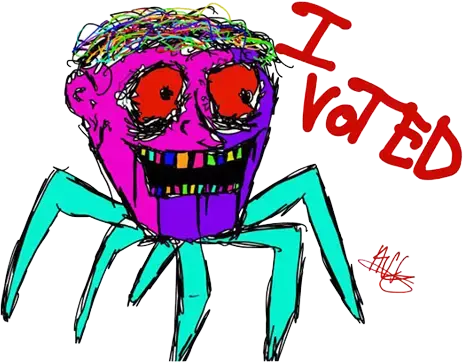The only possible good that can come of this wretched campaign is the ever-increasing likelihood that it will cause the Democratic Party to self-destruct. A lot of people are seriously worried about this, but I am not one of them. I have never been much of a Party Man myself. . . and the more I learn about the realities of national politics, the more I’m convinced that the Democratic Party is an atavistic endeavor – more an Obstacle than a Vehicle – and that there is really no hope of accomplishing anything genuinely new or different in American politics until the Democratic Party is done away with.
![]() From Fear and Loathing on the Campaign Trail '72
From Fear and Loathing on the Campaign Trail '72


I would not characterize the parties as having "switched," despite it's prominence in popular discourse. I'd describe it more accurately as a process of ideological sorting that resulted in the creation of a liberal and a conservative party. The coalitions before that point both had liberal/progressive wings in urban areas amongst the middle class that came into prominence in the late 19th century, hence the bipartisan consensus of the Progressive Era. Both parties also had conservative wings to one extent or another. The process of ideological sorting that we have seen only really completed itself around 2010 with the defeat of the last Southern Democrats, the conservative so-called Blue Dogs. It started with Congressional opposition to the New Deal with the formation of the Conservative Coalition in the late 1930s. Conservative Southern Democratic strategy then evolved from breaking with the party in order to discipline the liberal wing, with examples such as Strom Thurmond's 1948 Presidential Bid in response to Truman's integration of the armed forces that year, to outright voting for Republicans at the Presidential level in 1964, with Barry Goldwater only winning the formerly "Solid South" outside his home state of Arizona, as a result of his opposition to the 1964 Civil Rights Act. During this time from the 1960s to the 1994 Republican Revolution, you saw a proces of some white voters in the South switching to voting for all Republican candidates, abandoning a taboo they had held since the end of Reconstruction, while some continued to vote for conservative Democrats. This position of "Ticket Splitting" to elect a Republican President and a Democratic Congress saw some reprieve with the election of the Georgian Jimmy Carter in 1976 but, held as a trend until the next generation of white voters came of age and all voted solidly Republican in the states of the Deep South, where their superior numbers eventually overcame support for the local Democratic Parties that were being held up through the later part of the 20th century by the solid support of newly enfranchised African American voters. The landslide Republican victories in the Southern states in 1994 and 2010 completed this process in the Deep South, with many remaining Southern Democrats like Senator Richard Shelby becoming Republicans in response to these events.
appreciate the really detailed answer, was mostly wondering if using this on blueanon would work without them countering with “but they were the bad party back then”
is this taught in schools over there or something that has to be learned outside the classroom?
Nixon's "Southern Strategy" in 1968 is probably still taught in schools, for classes that make it past WWII before the end of the year.
The Blueanon people basically believe the Democratic Party started in 1964 and believe the first 150 years of the party's history didn't happen. They don't want to reckon with the legacies of Jackson, Bryan, Wilson, or even Roosevelt given how they're all diehard neoliberals. I'd say they're ideological descendants of the original Progressives but with less racism, with some even calling them "neoprogressives."
This amount of nuance is not typically taught in state-funded American public schools. I wanted to include some of it in the sort of units I wanted to teach for high schoolers but, my teaching career never materialized. Typically you most likely would learn this amount of nuance in the party's history in a upper level undergraduate course on the subject.
It's easier for me to see some ideological continuity in the Republican Party than the Democrats, given the original Democrats were a coalition of jingoistic yeoman settlers, slave-owning planter-aristocrats, and migrant- powered urban machines with a smattering of early conscious laborers. Nearly all those categories don't exist anymore. In contrast, I can at least see the theme of nativist middle class people in the Republican coalition going all the way back to when they absorbed the Know Nothing's in the 1850s. Though there were nativists in the Democrats at times pre 1964, especially in the Southern wing following the Civil War.